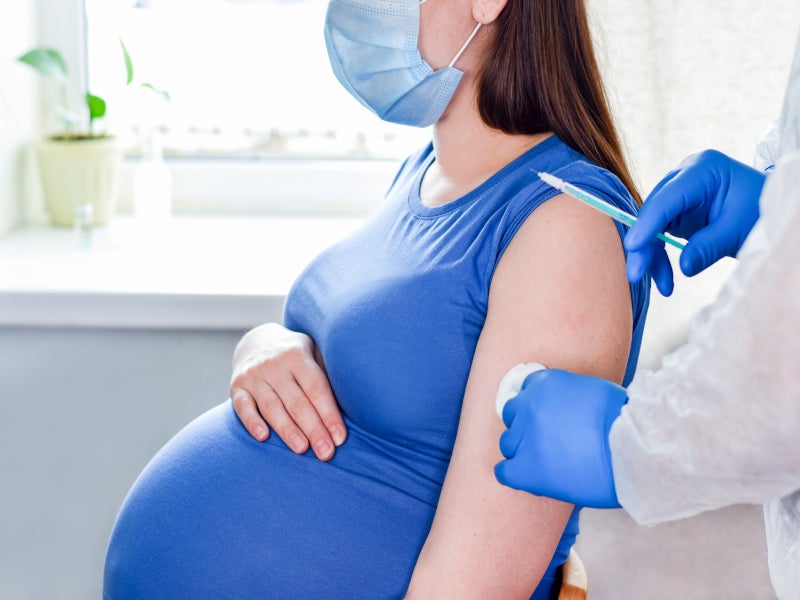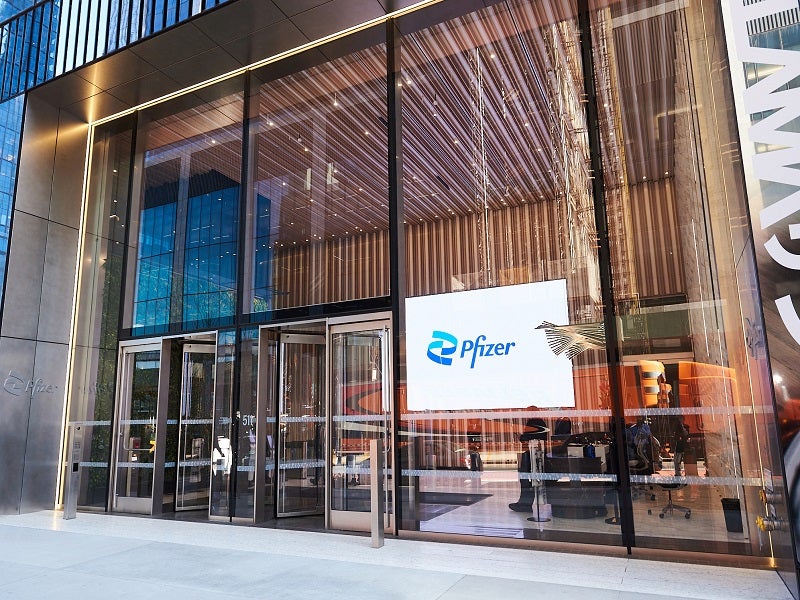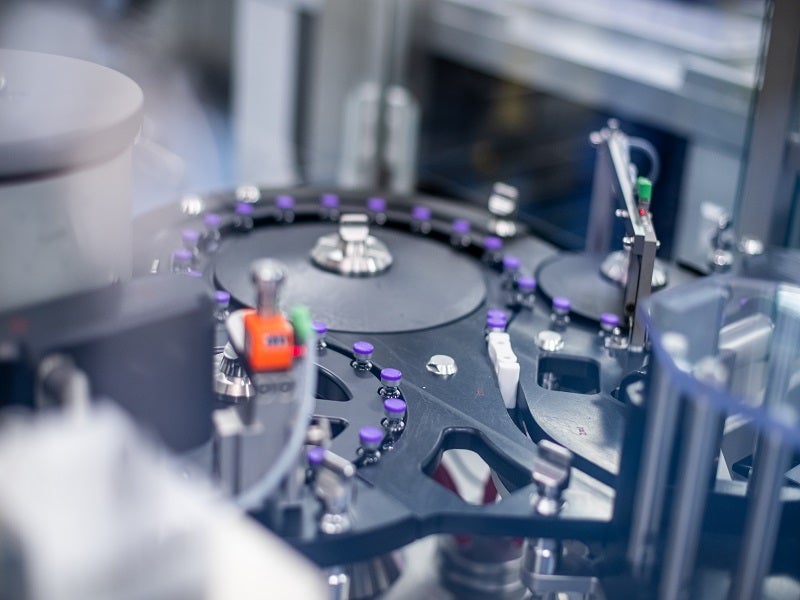Abrysvo is a first-of-its-kind respiratory syncytial virus (RSV) vaccine for active immunisation of pregnant women between 32 and 36 weeks of gestational age to prevent lower respiratory tract disease (LRTD) and severe LRTD caused by RSV in their infants within six months after birth.
The drug also provides active immunisation to individuals aged 60 years and older for the prevention of RSV-associated LRTD.
Abrysvo is a bivalent RSV prefusion F vaccine developed by Pfizer, a biopharmaceutical company based in the US. It is available in a single dose of approximately 0.5ml in clear and colourless solution after reconstitution for intramuscular administration.
The kit includes a vial containing a sterile white powder of lyophilised antigen component accompanied by a prefilled syringe containing a sterile water diluent component for reconstitution.
Regulatory approvals for Abrysvo
The US Food and Drug Administration (FDA) approved Abrysvo to prevent RSV-associated LRTD in individuals aged 60 years and older in May 2023.
Abrysvo received a positive opinion from the European Medicines Agency’s Committee for Medicinal Products for Human Use, recommending the vaccine for both older adults and maternal immunisation to help protect infants in July 2023. The European Commission approved the vaccine in August 2023.
During the same month, Abrysvo also received FDA approval for maternal immunisation.
Furthermore, the company has filed an application in Japan with the Ministry of Health, Labour, and Welfare for the approval of Abrysvo as a maternal immunisation to prevent infants against RSV and awaits approval in Canada against RSV-associated LRTD in adults aged 60 years and more and as a maternal vaccine to protect infants.
RSV-associated lower respiratory tract disease causes and symptoms
RSV is the most typical cause of lower respiratory tract infection in infants globally. Children at increased risk of disease due to RSV include premature infants, infants below two years with serious lung disease or congenital heart disease, infants with weak immune systems, and children with neuromuscular disorders.
The infection may be exhibited gradually in children with symptoms including runny nose, less eating or drinking, and cough associated with wheezing or breathing difficulty. The signs of RSV infection in young infants include irritability, decreased activity, less eating, or drinking, and pauses in breathing, known as apnea.
Mostly, all children get a mild RSV infection below two years of age that causes cold-like symptoms, but in certain cases, the condition can be severe, such as bronchitis and pneumonia. Children with such conditions need immediate care and hospitalisation, requiring oxygen supply and mechanical ventilation.
The disease may sometimes affect the respiratory organs of an infected child, potentially causing severe illness or death. Every year, between 58,000 to 80,000 children aged less than five are admitted to the hospital because of RSV infection in the US.
Abrysvo’s mechanism of action
The Abrysvo vaccine is unadjuvanted and is formulated with two pre-F proteins specifically chosen to enhance defence against both RSV A and B strains. It has been observed to exhibit both safety and efficacy.
Abrysvo triggers an immune response targeting RSV pre-F, offering protection against RSV-associated LRTD for active immunisation.
In passive immunisation, antibodies against RSV antigens in vaccinated pregnant mothers are passed through the placenta to protect infants under six months of age against LRTD and severe LRTD caused by RSV.
Clinical trials on Abrysvo
The FDA’s approval of Abrysvo as a maternal vaccine was based on the positive outcomes from the global, randomised, double-blinded, placebo-controlled Phase III clinical trial named MATISSE (MATernal Immunization Study for Safety and Efficacy).
The study was designed to determine the efficacy, safety, and immunogenicity of the vaccine against LRTD and severe LRTD due to RSV in infants born to healthy individuals vaccinated during pregnancy.
The study involved more than 7,000 pregnant women who were randomised in a 1:1 ratio to receive a single dose of either 120µg of Abrysvo or placebo at 24 weeks up to 36 weeks gestation.
The primary endpoints were severe RSV-associated lower respiratory tract illness and RSV-associated LRTD in newborns within 90, 120, 150, and 180 days of birth.
Abrysvo demonstrated an efficacy of 81.8% against severe medically attended lower respiratory tract illness caused by RSV in infants within 90 days after birth. Furthermore, it showed a high efficacy of 69.4% throughout the initial six months of life.
The vaccine was well-tolerated, and no safety concerns were observed for both vaccinated women and their newborns.
The most common side effects reported during the clinical trials were pain at the injection site, headache, muscle pain, and nausea.
Additional clinical study on Abrysvo
RENOIR (RSV vaccine Efficacy study iNOlder adults Immunized against RSV disease) is a global, randomised, double-blind, placebo-controlled Phase III clinical study designed to evaluate the efficacy, immunogenicity, and safety of a single dose of the vaccine in adults aged 60 years or older.
A total of approximately 37,000 individuals were randomised in a 1:1 ratio to receive either 120μg Abrysvo or placebo in the study.
An efficacy rate of 85.7% was observed in individuals with a more severe form of the disease, specifically the primary outcome of lower respiratory tract illness, as defined by the analysis of three or more symptoms associated with RSV.





